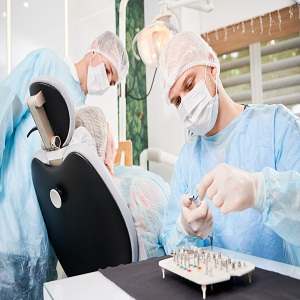IIT Mandi Develops Solution for Implant Antibacterial Coating
 Dr. Amit Jaiswal, an Associate Professor at the School of Biosciences and Bioengineering, led a team of researchers from the Indian Institute of Technology Mandi (IIT Mandi) to tackle implant-related infections. The team introduced a novel approach using sugar-coated nanosheets as coatings for implants.
Dr. Amit Jaiswal, an Associate Professor at the School of Biosciences and Bioengineering, led a team of researchers from the Indian Institute of Technology Mandi (IIT Mandi) to tackle implant-related infections. The team introduced a novel approach using sugar-coated nanosheets as coatings for implants.
In a recently published press release by IIT Mandi, it has been stated that the gradual accumulation of biofilms on medical implants can result in long-lasting infections and inflammation, ultimately leading to damage of the surrounding tissue.
In order to tackle the issue of implant-associated infections, the research team came up with a solution in the form of a biocompatible coating for implants. This coating, which does not release any harmful substances and works upon contact, utilizes quaternary pullulan functionalized MoS2 (MCP) glycosheets. The antibacterial efficacy of the MCP coating was exceptional, successfully eradicating over 99.5% of Escherichia coli and Staphylococcus aureus bacteria.
The developed coating consists of a distinctive blend of quaternized pullulan and MoS2 nanosheets, delivering a powerful protection against infections. Moreover, the coating process is both straightforward and reliable, guaranteeing no leakage from the surfaces of the implant. According to Dr. Amit Jaiswal from the School of Biosciences and Bioengineering at IIT Mandi, this solution has been significantly proven to be completely safe for human cells in vitro and in vivo in mice model. This discovery marks a promising breakthrough in the realm of medical implants.
The research findings indicate that the antibacterial performance of the implant surfaces remains consistent for more than 30 days without any leaching. During both in-vitro and in-vivo testing, MCP-coated implants have demonstrated their complete safety by not causing any acute or sub-chronic toxicity in mammalian cells. According to IIT Mandi, the MCP coating has shown its effectiveness in inhibiting the colonization of Staphylococcus aureus on stainless steel implants during a mouse model study on implant-associated infection.

